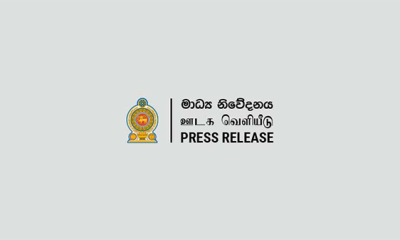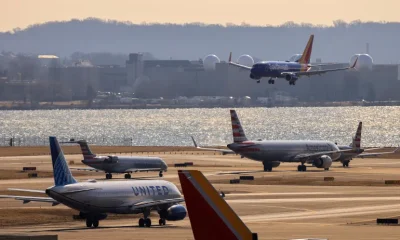News
Prez talks of referendum, rules out ‘national’ govt., slams Premjayantha
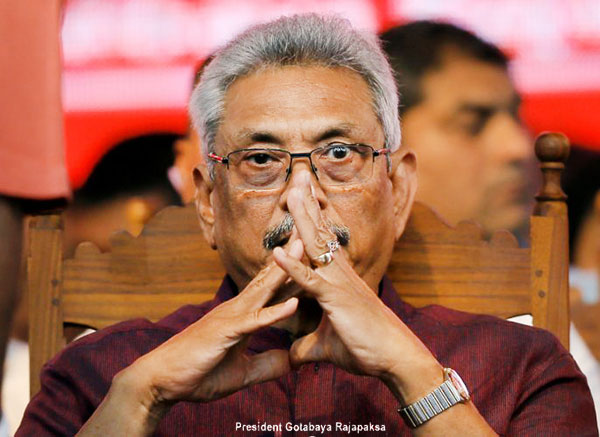
… Says he doesn’t serve with eye on elections
By Shamindra Ferdinando
President Gotabaya Rajapaksa has claimed that a youth recently inquired from him why a referendum couldn’t be conducted to ascertain whether the electorate approved him extending his first term by two years as Covid-19 deprived him of 2020 and 2021.
President Rajapaksa said so addressing an event to mark the naming of Siyambalanduwa Maha Vidyalaya, Moneragala, as a national school last Friday.
The last presidential election was held in Nov 2019. In terms of the 19th Amendment, enacted in 2015, the next presidential election is scheduled for 2025. The 19th Amendment restricted both parliamentary and presidential terms to five years each whereas they were six years previously.
A statement issued by the President’s Media Division (PMD) quoted President Rajapaksa as having told the gathering that the youth had approached him when he recently visited the Dalada Maligawa. President Rajapaksa has told the youth that he should be appointed an advisor to the President.
Declaring that the people realised difficulties, President Rajapaksa has emphasised the responsibility on the part of the government to explain the real situation to them.
Reiterating his commitment to fulfiling his promises at the presidential election, President Rajapaksa vowed to achieve his targets during the next three years.
Sri Lanka has had only one referendum (1982).
Referring to stripping of Susil Premjayantha of his portfolios on 04 January, two days after the veteran politician flayed the government over severe difficulties experienced by the public, President Rajapaksa stressed that the lawmaker concerned couldn’t absolve his responsibilities by blaming others.
The sacked Colombo District MP found fault with Trade Minister Bandula Gunawardena and Agriculture Minister Mahindananda Aluthgamage as well as those who took utterly irresponsible policy decisions. MP Premjayantha declared that the situation was so bad that it was too late to take remedial measures. The one-time SLFP General Secretary asserted that the government had caused irreparable damage.
Commending the armed forces for what he called the constructive role played by them, President Rajapaksa strongly criticized both officials and members of Parliament. The President said that when inquiries were made as regards responsibility pertaining to some work, some conveniently pointed the finger at the State Minister, who in turn claimed it was in the sphere of the cabinet minister. The President said: “Sometimes, they say the issue at hand came under Provincial Councils. Officials say they are hindered by laws.”
President Rajapaksa said that he had to strip Premjayantha of his portfolios as he faulted the government. “If the lawmaker alleged that the government was wrong, he, too, should accept responsibility,” President Rajapaksa said, declaring that all ruling party members of Parliament were collectively responsible for the government.
The government parliamentary group consists of 145 members, including National List MPs. Of whom, 117 represent the Sri Lanka Podujana Peramuna (SLPP), the main constituent of the ruling coalition.
Premjayantha was sworn in as State Minister of Education Reforms, Promotion of Open Universities and Distance Learning on August 26, 2021. President Rajapaksa offered the ministry to Premjayantha after Wijeyadasa Rajapaksa rejected it.
President Rajapaksa said that he wouldn’t form a government with a section of the Opposition to overcome the restrictions imposed on the number of ministers and State and Deputy Ministers. Pointing out that the 19th Amendment to the Constitution limited the number of cabinet and State/Deputy Ministers to 30 and 40, respectively, President Rajapaksa said that though all wanted cabinet portfolios he was not in a position to appease them.
There is provision for breaking the limits in case the ruling party forms government with the Opposition.
President Rajapaksa said that those who really wanted to serve the people didn’t require portfolios. Urging both members of parliament, including the Opposition and the public service to support good work undertaken by the government, President Rajapaksa emphasized that he didn’t serve with an eye on elections.
President Rajapaksa called for the steady support of the public service during the remaining three years.
Commenting on what he called the successful fight against the Covid-19, President Rajapaksa declared that there was no alternative but vaccination. The President appealed for those who hadn’t received the booster jab to visit the nearest vaccination centre.
President Rajapaksa claimed that since the last presidential election Sri Lanka hadn’t obtained any foreign loans. Whatever the reasons, the previous government had obtained loans for, his government was now faced with the daunting task of repaying USD 6.3 bn, annually.
The President expressed the hope that tourism could achieve 400,000 visitors this year thereby doubling earnings in USD to 10 bn. The President said at the time of 2019 Easter Sunday carnage, Sri Lanka received nearly 200,000 visitors. Commenting on the extremely difficult economic conditions, President Rajapaksa explained the steps taken by him to ease pressure on the foreign reserves. The President said that he ordered a ban on vehicle imports, importation of luxury goods as well as a range of food items to save foreign exchange.
News
34 new projects under “Clean Sri Lanka” programme this year
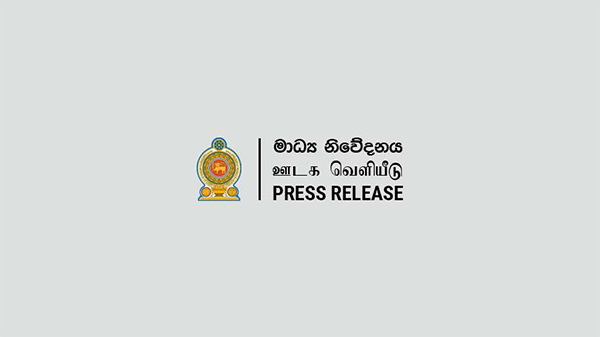
Under the guidance of President Anura Kumara Disanayake, the “Clean Sri Lanka” programme, implemented as a key government initiative is set to launch 34 new projects this year, and work on many of these projects is scheduled to commence by the end of this April.
In line with this, a one-day workshop was held on Thursday (10) at the “Clean Sri Lanka” Secretariat located in the Lotus Building at the Temple Trees, under the leadership of Secretary to the President Dr. Nandika Sanath Kumanayake. The workshop provided technical guidance on preparing project proposals in accordance with the formats required by the Department of National Planning for submission and approval.
The “Clean Sri Lanka” programme aims to foster social, environmental and ethical transformation across the country, with the active participation of all stakeholders. A sum of Rs. 5 billion has been allocated from this year’s national budget for its implementation.
Once the Department of National Planning grants approval for the proposed projects, detailed action plans will be developed in line with prescribed formats. It was agreed that projects deemed ready for implementation will commence before the end of April.
During the workshop, Secretary to the President outlined the government’s expectations and the intended outcomes of the “Clean Sri Lanka” programme.
Senior officials representing the Ministry of Public Administration, Provincial Councils and Local Government, Ministry of Foreign Affairs, Foreign Employment and Tourism, Ministry of Health and Mass Media, Ministry of Education, Higher Education and Vocational Education, Ministry of Transport, Highways, Ports and Civil Aviation, Ministry of Public Security and Parliamentary Affairs, Ministry of Agriculture, Livestock, Lands and Irrigation, Ministry of Digital Economy, Ministry of Urban Development, Construction and Housing, Ministry of Environment, Ministry of Industries and Entrepreneurship Development, Sri Lanka Police, and the Western Provincial Council were in attendance.
Also present were Engineer S.P.C. Sugeeshwara, Additional Secretary to the President (Clean Sri Lanka Programme) and G.M.R.D. Aponsu, Senior Additional Secretary to the President (Finance and Economic Affairs), along with other senior officials.
[PMD]
News
Financial assistance of USD 01 Million for the Disaster-Affected People of Myanmar
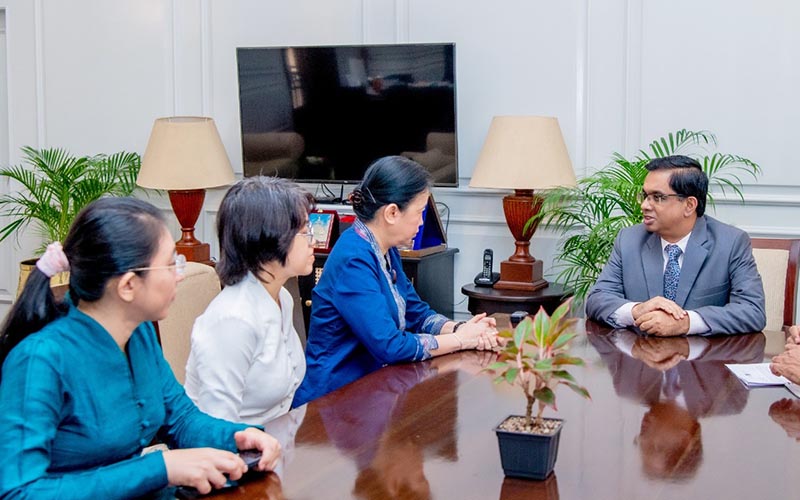
The Government of Sri Lanka has extended financial assistance amounting to USD 01 Million to provide relief to the people of Myanmar affected by the recent earthquake.
The relevant cheque was officially handed over by the Secretary to the President, Dr. Nandika Sanath Kumanayake, to the Ambassador of Myanmar to Sri Lanka, Marlar Than Htaik.on Thursday (10) at the Presidential Secretariat.
Despite the prevailing economic challenges in Sri Lanka, the Ambassador of Myanmar expressed her deep appreciation to President Anura Kumara Disanayake and the Government of Sri Lanka for this gesture of solidarity and support towards the disaster-stricken people of Myanmar.
Furthermore, the Ambassador extended her gratitude for Sri Lanka’s decision to deploy relief teams and medical personnel during this difficult time. She also noted that such acts of compassion further strengthen the longstanding religious and cultural friendship between Sri Lanka and Myanmar.
The Ambassador also briefed the Secretary to the President on the current situation in Myanmar following the earthquake.
Senior Additional Secretary to the President, Roshan Gamage, along with officials from the Embassy of Myanmar, Winh Wint Khaus Tun and Ms. Lei Yi Win, were also present at this occasion.
[PMD]
News
Indo-Lanka MoUs unlikely to be tabled in Parliament any time soon
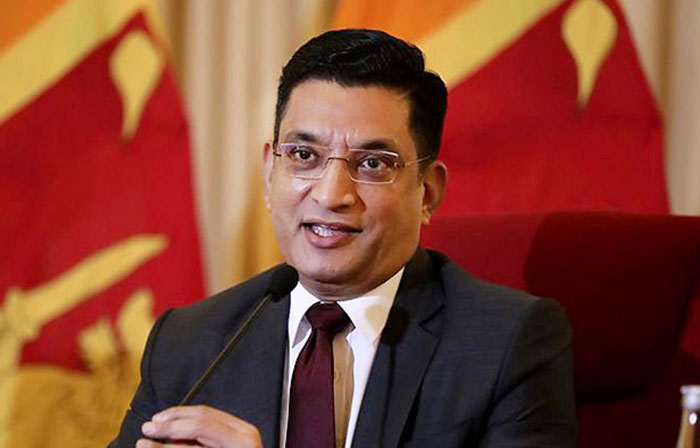
…of seven SOCs only one constituted so far
Sri Lanka’s controversial MoU on Defence Cooperation with India was unlikely to be taken up any time soon in Parliament in spite of the House Sectoral Oversight Committee (SOC) on Governance, Justice and Civil Protection that has been assigned defence, authoritative sources told The Island.
Of the seven SOCs only one was activated with the recent election of Dr. Najith Indika, MP, as the Chairman of the Sectoral Oversight Committee on Governance, Justice, and Civil Protection of the Tenth Parliament.
The inaugural meeting of the current parliament was held on 21 Nov., 2024.
Sources said that the parliament had met for the last time yesterday (10) before the Sinhala and Tamil New Year holiday. It is scheduled to meet again on May 8.
The UNDP that has financially backed the establishment of the SOC system to help strengthen the role of the parliament recently reached a consensus with the government to reduce the number of SCOCs from 17 to seven. The Island, in writing, asked for the UNDP’s reaction to the operation of SOCs but had not received a response at the time this edition went to press.
The SOCs have the power to examine any Bill, except the Bills defined in Article 152 of the Constitution, Treaty, Reports including the Annual and Performance Reports relating to the institutions coming under its purview or any other matter referred to the Committee by Parliament or any Committee or a Minister relating to the subjects and functions within their jurisdiction.
Sources said that out of the seven SOCs only one had been activated during the past five months though the government and the Opposition agreed to share the leadership of them.
Accordingly, it was agreed that the government would appoint chairpersons to four SOCs –– Economic Development and International Relations, Health, Media and Women’s Empowerment, Science, Technology and Digital Transformation and Governance, Justice and Civil Protection .
It was also agreed that the Opposition would appoint chairpersons to the SOCs on Infrastructure and Strategic Development, Education, Manpower and Human Capital, and Environment, Agriculture and Resource Sustainability to the Opposition.
India and Sri Lanka on April 5 signed six MoUs on HVDC interconnection for import/export of power, cooperation in the field of sharing successful digital solutions implemented at population scale for digital transformation, defence cooperation, multi sectoral grant assistance for Eastern province, health and medicine and pharmacopoeia cooperation. In addition to them, India, Sri Lanka and UAE signed a tripartite MoU cooperation in development of Trincomalee as an energy hub.
The Island asked Ali Sabry, PC, who served as foreign minister during Ranil Wickremesinghe’s tenure as the President (July 2022 to Sept 2024) whether the seven MoUs had been discussed during that period. We also asked him whether those MoUs should have been discussed at SOCs before finalisation.
Sabry said: “Most of the MOU to my knowledge were discussed except the one on Defence Cooperation, which I am unaware of. General procedure is the relevant line ministry prepares the initial draft and gets the input from the Foreign Ministry and goes for stakeholder consultation of all ministries and agencies involved. Then the President’s Office grants its sanction and with the approval of the AG, it goes before the cabinet of ministers. With Cabinet approval, the government could sign the MOU.”
Sabry said that he was of the opinion that once the government signed a particular MoU, it should be placed before the parliament. “MOU’s are generally not legally binding and only signify the desire to work together. If the signed MoUs were to be implemented, then they have to be followed by agreements or laws.”
He emphasised the pivotal importance of transparency in the whole process. The ex-minister said: “I think transparency is crucial in these matters. Concealment leads to speculation and assumption of the worst. The MOUs should be tabled in Parliament for public information. Discussion at the relevant SOCs would have been helpful. There are growing fears fueled by lack of information in the public domain. This is a private comment, not to be attributed to me.
Asked whether MoUs, particularly the ones on defence and energy had to be approved by the Attorney General, the former minister said that the AG has to advise the MoUs compatibility with the Constitution. “But Article 157 of the Constitution does not apply; the 2/3 majority stipulated there envisages only investment treaties.” Foreign Minister Vijitha Herath assured Parliament on April 8 that the AG had cleared all seven MoUs and none of them were inimical to the country.
By Shamindra Ferdinando
-

 Business5 days ago
Business5 days agoColombo Coffee wins coveted management awards
-

 Business7 days ago
Business7 days agoDaraz Sri Lanka ushers in the New Year with 4.4 Avurudu Wasi Pro Max – Sri Lanka’s biggest online Avurudu sale
-

 Features6 days ago
Features6 days agoStarlink in the Global South
-

 Business7 days ago
Business7 days agoNew SL Sovereign Bonds win foreign investor confidence
-

 Features3 days ago
Features3 days agoSri Lanka’s Foreign Policy amid Geopolitical Transformations: 1990-2024 – Part III
-

 Features6 days ago
Features6 days agoModi’s Sri Lanka Sojourn
-

 Midweek Review3 days ago
Midweek Review3 days agoInequality is killing the Middle Class
-

 Features5 days ago
Features5 days agoSri Lanka’s Foreign Policy amid Geopolitical Transformations: 1990-2024 – Part I



